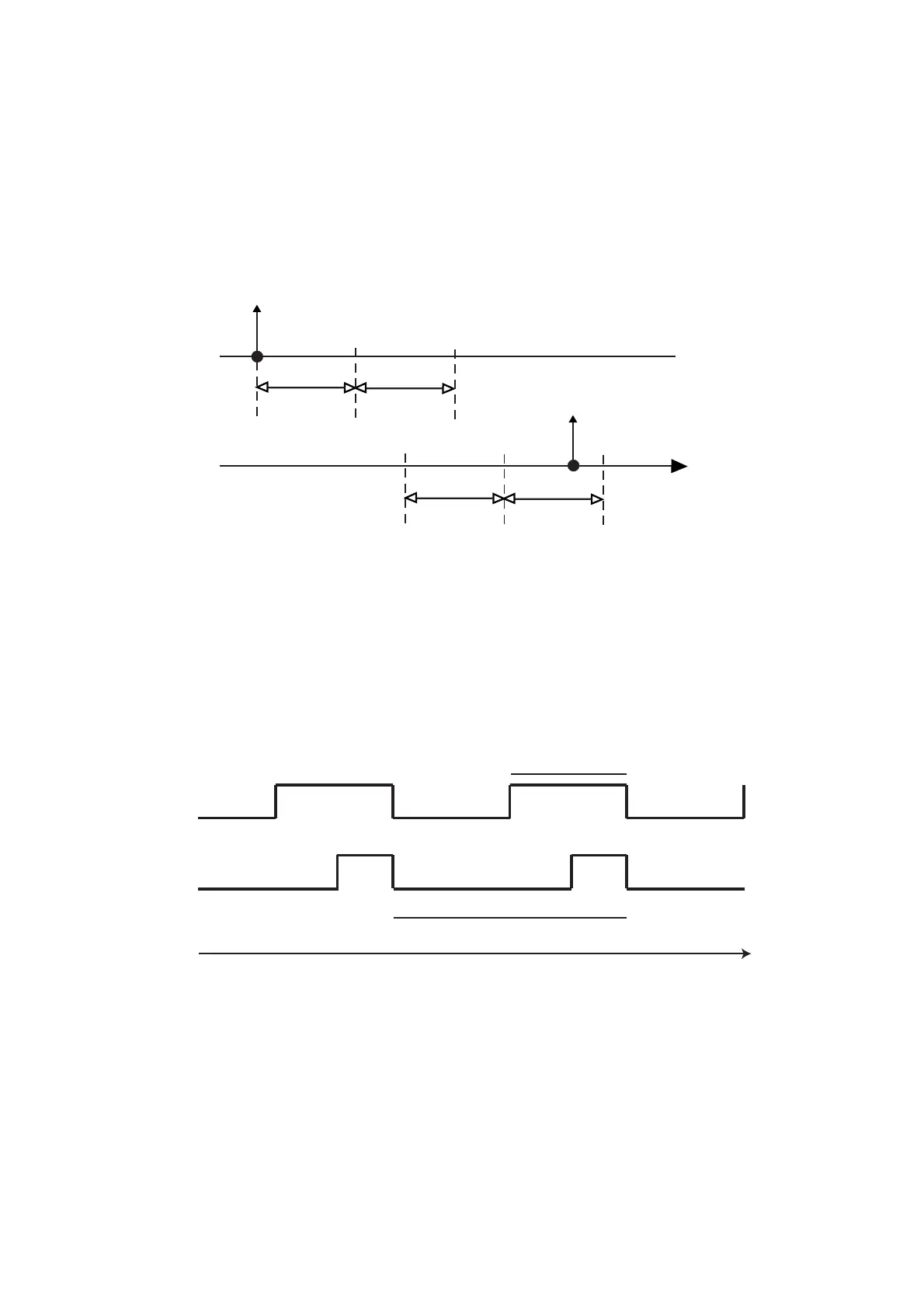TIMER: con DIPENDENZA=15 e TIPO DI USCITA=1, il
parametro INSERZIONE definisce il tempo di ON come
percentuale del periodo (C12); in questo caso INSERZIONE
deve assumere solo valori positivi (tra 1 e 99).
Esempio 7: INSERZIONE
Nel figura sottostante sono raffigurati i punti di intervento di
un controllo con 2 uscite, con questi parametri di lavoro:
St1=10, St2=20, P1=P2=6
OUT1 (punto A): DIPENDENZA=C34=1,
INSERZIONE= C36=-100;
OUT2 (punto B): DIPENDENZA=C38=2,
INSERZIONE= C40= +75.
Esempio 8:Timer
Un’uscita TIMER è selezionata da DIPENDENZA=15, TIPO
DI USCITA=1 e da INSERZIONE (percentuale ON) com-
presa tra 1 e 99 in un tempo ciclico fissato da C12 (s). Qui
sotto vengono proposte OUT1 e OUT2 come uscite TIMER
con C36 maggiore di C40, esempio:
OUT1 C34=15, C35=1, C36=50;
OUT2 C38=15, C39=1, C40=25.
TIMER: when DEPENDENCE=15 and type of output=1,
ENERGIZATION defines the On time as a percentage of
C12: in this case ENERGIZATION will assume positive
values only (1-99).
Example no. 7: ENERGIZATION
The diagram below shows the energization points of a
two-output controller with the following setting:
St1=10, St2=20, P1=P2=6
OUT1 (point A): DEPENDENCE=C34=1,
ENERGIZATION=C36= -100;
OUT2 (point B): DEPENDENCE=C38=2,
ENERGIZATION=C40=+75.
Example no. 8: Timer
TIMER is given by DEPENDENCE=15, TYPE OF OUT-
PUT=1 and ENERGIZATION ranging between 1 and 99 in
a cyclic time set by C12 (s).The graph below shows
OUT1 and OUT2 working as TIMER outputs with
C36>C40:
OUT1 C34=15, C35=1, C36=50;
OUT2 C38=15, C39=1, C40=25.
45
